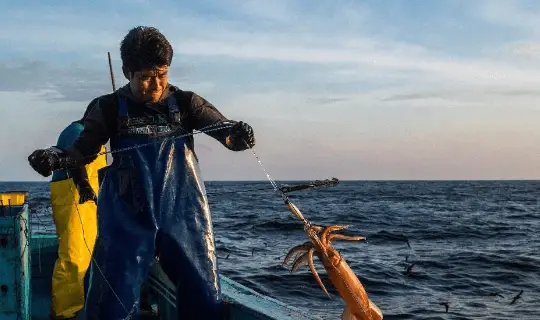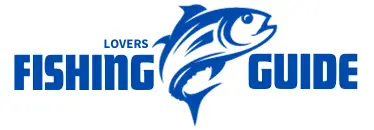To stop illegal fishing, authorities can implement strict regulations and increase surveillance in high-risk areas. By imposing severe penalties, monitoring fishing activities, and collaborating with international organizations, illegal fishing can be effectively combated. Illegal fishing poses a significant threat to marine ecosystems and global food security. Taking decisive action to prevent
illegal fishing activities is crucial in safeguarding our oceans. By implementing stronger enforcement measures, such as increased patrols and monitoring technologies, authorities can crack down on illegal fishing operations effectively. Collaborating with international partners to share information and coordinate efforts can also help in combating this illegal practice. Through collective action and a united front against illegal fishing, we can work towards preserving marine biodiversity and promoting sustainable fishing practices for the future.
Causes of illegal fishing
Illegal fishing is a pressing issue that plagues our oceans and threatens marine ecosystems worldwide. Understanding the root causes of this detrimental practice is crucial in combating its detrimental consequences. Let’s delve into the reasons why illegal fishing persists despite global efforts to tackle it.
Main Causes of Illegal Fishing
Poverty And Economic Factors
Poverty: Impoverished communities may turn to illegal fishing as a means of survival.
Lack of Alternative Livelihoods: Limited economic opportunities can drive individuals to engage in illegal fishing.
High Profits: Illegal fishing can yield significant financial gains for those involved, enticing further illegal activities.
Lack Of Enforcement And Governance
Weak Laws and Regulations: Inadequate legal frameworks fail to deter illegal fishing practices effectively.
Corruption: Disregard for regulations due to corruption compromises efforts to combat illegal fishing.
Insufficient Monitoring and Control: Inadequate surveillance makes it easier for illegal fishing operations to go undetected.
Overexploitation Of Fish Stocks
Depleted Fish Populations: Overfishing and illegal practices lead to the depletion of fish stocks, jeopardizing marine ecosystems.
Increased Demand: Growing global demand for seafood fuels illegal fishing activities.
Understanding Illegal Fishing
Illegal fishing is a detrimental practice that causes harm to marine ecosystems and fish populations. It refers to the act of fishing in violation of laws and regulations set by governing bodies. This activity often leads to overfishing and threatens the sustainability of fish stocks. The impacts of illegal fishing are vast, including the depletion of fish populations, disruption of marine habitats, and economic losses for legitimate fishermen. By understanding what illegal fishing entails and its consequences, steps can be taken to address and prevent this harmful practice.
Global Efforts To Combat Illegal Fishing
Global efforts to combat illegal fishing are crucial in protecting marine ecosystems. International agreements and conventions play a vital role in creating regulations to prevent illegal fishing practices. These agreements establish frameworks for cooperation among countries, leading to better enforcement of fishing laws. Regional fisheries management organizations function as important bodies in overseeing fishing activities in specific regions. By collaborating with these organizations, countries can work together to address illegal fishing effectively.
Strengthening Legal Frameworks And Enforcement
Tougher penalties and fines: Implementing strict penalties and hefty fines for illegal fishing activities serves as a deterrent and encourages compliance with regulations. Increased cooperation between countries: Collaborative efforts between nations are crucial in combating illegal fishing, as it enables sharing of resources, information, and enforcement actions. Improved traceability and transparency: Enhancing traceability measures and transparency in the fishing industry helps to track the flow of seafood products and identify illegal activities more effectively.
Promoting Sustainable Fishing Practices
Illegal fishing is a threat to marine ecosystems and local economies. Promoting sustainable fishing practices is crucial for protecting ocean biodiversity. Supporting local fishing communities helps in creating opportunities for economic growth and ensures responsible fishing practices. Implementing sustainable fishing certifications can help in monitoring and regulating fishing activities. By promoting responsible consumption, consumers can support sustainable fishing practices and discourage illegal fishing activities.
Frequently Asked Questions Of How To Stop Illegal Fishing
What Are The Negative Effects Of Illegal Fishing?
Illegal fishing leads to the depletion of fish populations, harming marine ecosystems, and threatening the livelihoods of legitimate fishermen. It also poses a risk to endangered species and causes economic losses for countries relying on fishing industries.
Why Is It Important To Stop Illegal Fishing?
It is crucial to halt illegal fishing as it preserves marine biodiversity, sustains fishing industries, safeguards food security, supports coastal communities, and contributes to the overall health of the oceans. Preventing illegal fishing also helps in combating other illicit activities, such as smuggling and human trafficking.

